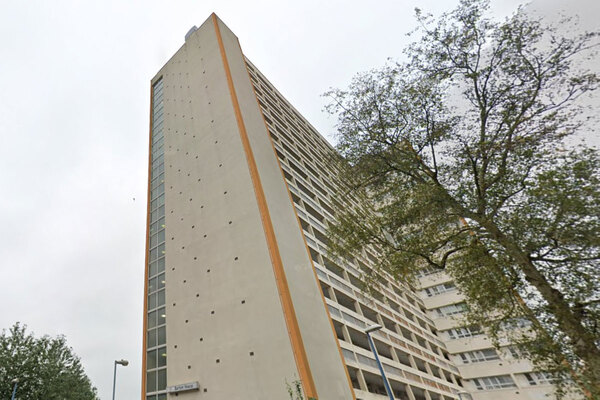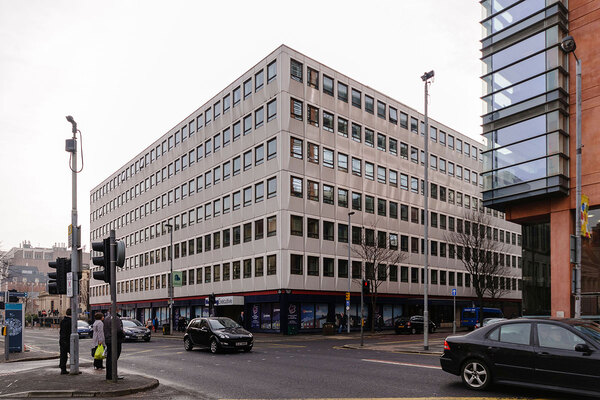Council plans to buy homes off landlords after tenants served eviction notice
A London council is planning to buy up properties where tenants have been threatened with eviction because the landlord no longer wants to let the property as temporary accommodation.

Newham’s preventative eviction acquisition programme – to be allocated an initial £20m – aims to allow people to stay in their homes, reduce pressure on the council’s homelessness service and increase the amount of affordable housing in the borough.
“Each acquisition will enable a family to remain in their home and prevent further homelessness and deliver much-needed affordable and accessible housing to be let at London Housing Allowance rent, for a purchase price at current market rates,” according to the report heard at a cabinet meeting this week.
It comes after the council was given notice on around 350 privately owned properties that it uses as nightly paid accommodation, with eviction notices served on the households living in them.
The properties are owned by private individuals or companies and are managed by temporary accommodation agents who have an arrangement with the council to use the units on a nightly paid basis.
The council said rising interest rates, anticipated changes in the regulation of the private rented sector and increasing market rents were leading private landlords to either look to sell their properties or achieve higher market rents.
In July, research by London Councils revealed that the number of private rental listings in the capital had dropped by 41% since the COVID-19 pandemic.
This, in turn, reduced the number of properties available for councils to use as temporary accommodation.
“The council has also seen a significant rise in homelessness applications where a private landlord has begun eviction proceedings against a tenant and, if evicted, the council would owe the tenant a homelessness duty and would have a statutory duty to find them alternative accommodation.
“Due to current housing pressures, this would most likely be in costly nightly paid accommodation, further exacerbating the general fund overspend,” the report said.
In July, Candida Thompson, assistant director of housing needs at Newham Council, told the All-Party Parliamentary Group (APPG) for London that the homelessness and temporary accommodation situation was the “worst” she had “ever experienced”.
She said that, on average across the capital, homelessness presentations were up 9.4%; in Newham, it was up by more than 20%.
Newham also has the highest number of households in temporary accommodation in the country: 5,878 at the beginning of April.
Of those, 3,193 were placed in nightly booked properties, the most expensive and insecure form of accommodation.
The council said that keeping households in emergency accommodation was a “major budgetary pressure”, with an anticipated overspend of £2m in the first quarter of 2023-24.
To reduce these pressures, the council said it was exploring a range of approaches to increase the supply of accommodation across the short, medium and long term. The priority was to reduce nightly booked temporary accommodation.
“Increasing the supply of affordable housing is one of the most significant ways in which the council can intervene in the local housing market to try to address these challenges,” the council report said.
The report acknowledges that “at this early stage in the process, it is not clear how many landlords will be willing to sell properties to the council”.
“Therefore, the budget envelope being recommended for approval could allow the council to acquire up to 44 units.
“If this is not achievable, the balance of the capital allocation will be redirected to alternative acquisition proposals,” according to the report.
The properties are predominantly located in Newham and surrounding boroughs and are a mix of houses and flats.
“Without council intervention, the properties will be either sold on the open market or re-let to private tenants at significantly higher rents,” the report said.
Cabinet members approved the programme on Tuesday.
The new programme follows the council’s street property acquisition programme, plans for which were approved in 2021.
The programme launched with the aim of acquiring 107 properties. To date, 35 have been acquired.
Shaban Mohammed, Newham’s cabinet member for housing management and modernisation, told Inside Housing that the council was “committed to supporting people experiencing homelessness, treating them with respect and dignity and finding sustainable solutions to their housing needs”.
He said: “We’re doing everything we can to maximise the supply of housing in Newham, including purchasing properties and building new ones, as we try to provide vulnerable residents with a secure home and reduce the number of people living in costly nightly paid accommodation.
“The scale of the challenge is immense and we cannot face it alone.
“We support London Councils in urging the government to take immediate action to provide local authorities with the funding and powers needed to address the housing crisis.
“This includes raising Local Housing Allowance, boosting the homelessness prevention grant and discretionary housing payments and providing more investment to enable councils to acquire more homes.”
Sign up for our Council Focus newsletter
Already have an account? Click here to manage your newsletters











